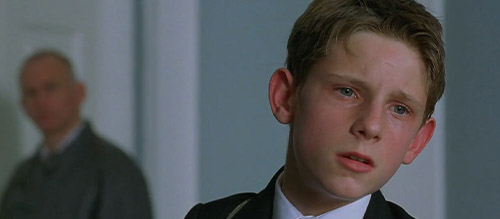Billy Elliot (2000) Review
This article was written exclusively for The Film Magazine by Angel Lloyd.
Billy Elliot (2000)
Director: Stephen Daldry
Screenwriter: Lee Hall
Starring: Jamie Bell, Julie Walters, Gary Lewis, Jean Heywood, Jamie Draven, Stuart Wells
It’s been twenty years since Billy Elliot burst onto cinema screens, and its portrait of the North East remains just as moving and inspiring today. It’s a region often depicted as being rather bleak and derelict, most notably in Ken Loach’s sombre portrayals of Newcastle in I, Daniel Blake and Sorry We Missed You. Loach’s films are undeniably powerful, unapologetically confronting the audience with the harsh reality of austerity, but perhaps the reason Billy Elliot has remained cherished for so long, not just by those from the North East but around the world, is due to its graceful balancing of warmth, humour, rage and hope.
Set in 1984, in a small Durham mining village, eleven year old Billy stumbles in on a ballet class after a humiliating match in the boxing ring. It soon becomes evident that dance is a cathartic release for Billy, serving as a secret refuge from the pain and anger tearing his family apart; his older brother and Dad being embroiled in the turmoil of the era’s miners’ strikes. The conflict has seemingly blended in with everyday life; from school friend Debbie absentmindedly dragging a stick along a row of riot shields to policemen casually taking a break and playing catch outside Billy’s house. Although these are comical moments, there is a somewhat ominous atmosphere that pervades them, as though the strike has melted into the fabric of the community, emphasising its impact on the region’s history and identity.
The ruptures of violence on the picket lines are made all the more jarring and invasive due to the fact that the film is predominantly from a child’s perspective. Riot police are shown pursuing and cornering strikers, Billy’s older brother Tony chief amongst them. Watching on, Billy screams after his brother to turn back, but he is blindly hurtling through a sea of white sheets that are soon bloodied after police horses catch up to him. The Clash’s “London Calling” underscores the whole sequence, a howling war cry of fury and injustice finally boiling over.
The rage and bitterness felt after the miners’ strikes is still imprinted on communities even now, evidenced by the dismay when Blyth, a used-to-be coal mining town voted for the Conservatives in the UK’s 2019 general election. The tension is still very raw, the pain of colleagues, friends and family turning on one another displayed in the scene when Tony begs his Dad, Jackie, not to go back to work. Reaching a desperate low, Jackie renounces his morality in order to give Billy a chance to realise his dreams. It’s despairingly awful to watch, and even more so when you come to realise how little has changed in the past thirty years.
The aggression and pain in this film is only matched by the passion of the ballet sequences. Compelled to dance, Billy buzzes with the excitement and energy of a windup toy set free, training with fierce dedication and focus. The editing is rhythmic and lively, raw and captivating, the soundtrack a fizzing mix of classical and rock n’roll, a bustling sense of Billy trying new things, daring to discover himself. The idea of acceptance is a major theme in the film, not only concerning Billy’s struggle, but also that of his best friend, Michael, who is forced to hide his sexuality. The friendship they share is almost unparalleled in its sweetness and mutual acceptance of one another, never questioning, merely bemused with mild curiosity. As well as this, a repeated line of dialogue uttered by Billy’s Nana is particularly striking, her claims that “they said I could have been a professional dancer if I’d had the training” forcing one to ponder on the unrealised aspirations of those who weren’t able to fulfil them due to mere circumstance, time and place, a path Billy very easily could have followed.
Although the North East seemingly represents somewhere to escape from, a place that can’t bolster Billy’s dreams, the film serves as an ode to finding inspiration in the most unlikely places. However, it’s also a touching tribute to the strength of a community, honouring the memory of one of the most infamous strikes in history and the resulting trauma that still lingers today. Nonetheless, Billy Elliot remains eternally uplifting, punchy and heart-warmingly funny; these lighter moments made even more joyous in contrast to the heavy backdrop that underlies Billy’s story.
“I love to boogie”… when in doubt, just dance.
20/24
Written by Angel Lloyd
You can support Angel Lloyd in the following places:


